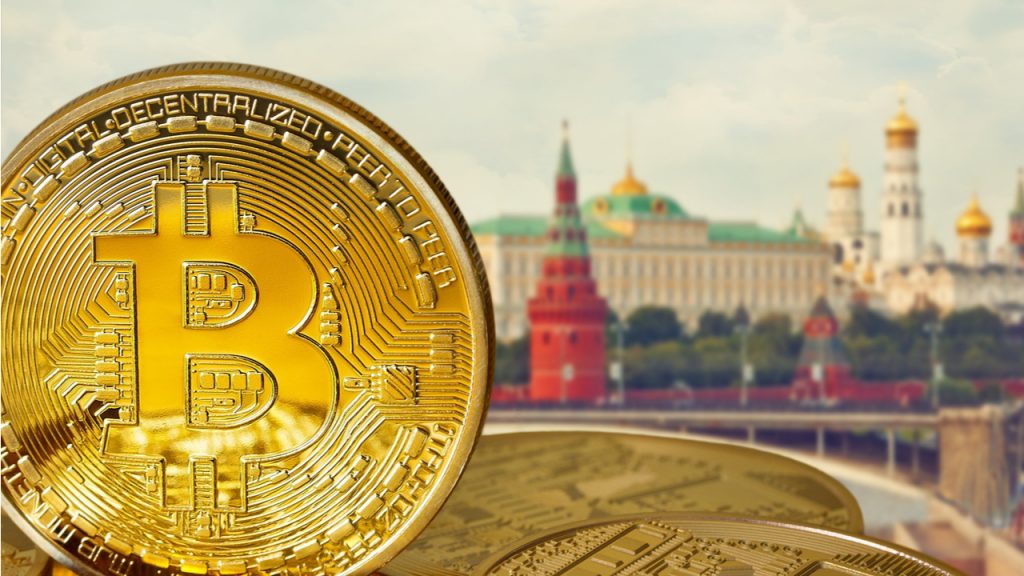Sanctions May Not Affect Russia’s Access to Crypto, Reports Claim – Bitcoin News

As sanctions rain on Russia, following the Kremlin’s decision to invade Ukraine, media reports have suggested that they are unlikely to limit the country’s access to crypto assets. While the Russian elite may use them to circumvent restrictions, ordinary Russians are also likely to keep trading digital coins on foreign platforms.
Cryptocurrencies Deemed Potential Tool for Russian Billionaires Bypassing Sanctions
U.S. and EU sanctions, imposed in response to Moscow’s military assault on Ukraine, are threatening the ability of Russia, and its elites, to do businesses in dollars and euros. However, as the country has recently chosen a path towards regulating cryptocurrencies, the penalties might carry less weight, Bloomberg noted in a report.
Digital currencies such as bitcoin, often traded on decentralized platforms, could become an effective instrument to circumvent the restrictions. According to Matthew Sigel who heads digital assets research at investment manager Vaneck, “neither dictators nor human rights activists will encounter any censor on the Bitcoin network.”
Russian billionaires, those who have been targeted already, can potentially utilize cryptocurrency to evade the sanctions, the article remarks. Through anonymous transactions, digital coins can offer them opportunities to purchase goods and services and even invest in assets outside of the Russian Federation and avoid banks. Mati Greenspan, CEO of financial advisory firm Quantum Economics, said:
If a wealthy individual is concerned that their accounts may be frozen due to sanctions, they can simply hold their wealth in Bitcoin in order to be protected from such actions.
Besides the option to spend and send coins directly, crypto holders can also transfer funds through multiple wallets and use exchanges based in jurisdictions that are not backing the restrictions. The same applies to businesses in sanctioned nations. For example, Iran has been considering allowing the use of cryptocurrencies in international settlements for similar reasons.
Exchanges Are Not Denying Russians Access to Crypto, Russian Media Says
One of the proposed measures is to cut Russia off from Swift, the global interbank payments system. According to Artem Deev, head of the analytical department at Amarkets, such a move is unlikely to affect individual cryptocurrency users. Commenting for RBC Crypto, he expressed his opinion that Russia’s regulatory decisions will have a bigger impact.
In another report, the news outlet quotes an unnamed representative of an international crypto exchange who said that the digital asset trading platforms were unlikely to impose restrictions on their Russian users as a result of the tightening sanctions against Russia. The source elaborated:
It will not affect individuals, it will be negative for businesses, especially for exporters and importers.
“Crypto exchanges are decentralized organizations, so they do not comply with the sanctions requirements of the United States and the European Union,” added Tatiana Kosykh, a lawyer at the Advocate Premium law firm.
Meanwhile, representatives of Currency.com, the crypto exchange founded by Belarusian tech entrepreneur Viktor Prokopenya, told RBC that the platform does not plan to ban customers from Russia or other countries, despite the current conflict in Ukraine. They believe that most other exchanges, except those based in the U.S., will follow the same route.
Do you think Russia and its citizens will maintain access to the global crypto market after the Russian military invasion of Ukraine? Share your expectations in the comments section below.
Image Credits: Shutterstock, Pixabay, Wiki Commons
Disclaimer: This article is for informational purposes only. It is not a direct offer or solicitation of an offer to buy or sell, or a recommendation or endorsement of any products, services, or companies. Bitcoin.com does not provide investment, tax, legal, or accounting advice. Neither the company nor the author is responsible, directly or indirectly, for any damage or loss caused or alleged to be caused by or in connection with the use of or reliance on any content, goods or services mentioned in this article.













